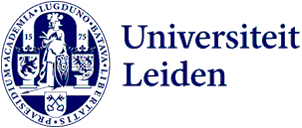
Executive Board visits Institute for History: ‘History helps us make sense of the present’
Each research institute has its own dynamic. The Executive Board is visiting our institutes to find out what they are up to. On 24 June, it was the turn of the Institute for History. ‘History helps us make sense the present, whether through family stories, local issues or world politics.’
History is all around us
‘When you arrived, you may have noticed our bookcase – a great source of pride’, said Academic Director Herman Paul in his word of welcome. ‘But more than anything, we are a teaching institute. Teaching is our core activity, and it’s what we dedicate the vast majority of our time to.’
Director of Research Alicia Schrikker emphasised the importance of history. ‘History helps us make sense of the present, whether through family stories, local issues or world politics. It’s all around us.’ The institute’s motto Global Questions, Local Sources reflects this approach. ‘We connect local case studies to global debates, and our scope is broad: from religious identity in antiquity and stereotyping in the Middle Ages to the global study of nationalism.’

Collegiality
A recent audit showed that the institute is very productive. ‘This high level of productivity comes from collaboration and joint publications’, said Schrikker. ‘We conduct multidisciplinary research and are very socially engaged. The media knows where to find us, and people read our books.’ The institute works with the Leiden University Institute for Area Studies (LIAS), the Institute of Biology and the Faculty of Archaeology – on climate history, for example.
The audit also highlighted that the Institute for History is considered to be a great place to work. Those present listed collegiality and autonomy as key ingredients of a positive working environment. Teaching responsibilities are distributed fairly and funding benefits the whole community. People feel connected to the institute and have time for one another. ‘When hiring, we deliberately look for team players’, said one staff member. ‘There’s no room for big egos.’
Starter grants
Starter grants have become a point of tension because there are more assistant professors than available grants. That can lead to competition among early-career researchers for grants, potentially undermining team spirit. But the assistant professors have found a solution: they identified links between their research projects and applied for grants as a team. ‘That led to many great things’, says Schrikker.
Four researchers then shared insights into their current projects:
Anne Heyer is researching mass politics in 19th-century Europe. Together with colleagues, she submitted a joint application for starter grants. ‘We want to be a new generation that collaborates rather than competes. That’s why I applied with colleagues whose work also focuses on political rhetoric.’ For her research, Heyer uses large language models and the ALICE supercomputer to study how and why emotions surrounding mass politics change. ‘I’m glad we have access to this technology. I was trained as a traditional historian, but this is proving really useful.’
Isaac Scarborough and Liesbeth Claes are comparing how coins like the denarius and the rouble circulated within the Roman Empire and the Soviet Union. Their research explores how value is assigned to money in different contexts.
María Gabriela Palacio is investigating how value is assigned to human lives within our economic systems – and what that means for the marginalisation of groups such as queer and indigenous communities, migrants and women. Much of this is rooted in binary thinking – man/woman, legal/illegal – and the value we attach to these categories. What if, instead of challenging oppression, we sought to dismantle the very binaries that sustain it?
Paul van Trigt is researching the history of disability, offering insight into how ideas of ‘normal’ have evolved over time. His current focus is on loneliness. He actively involves students in his research by having them interview people with mild intellectual disabilities.
Financial matters
After the presentations, the members of the Executive Board met the management team to discuss future challenges. The Institute for History is also facing financial pressures, which could threaten some of its key strengths, such as its collegial atmosphere and world-leading position in the field.

